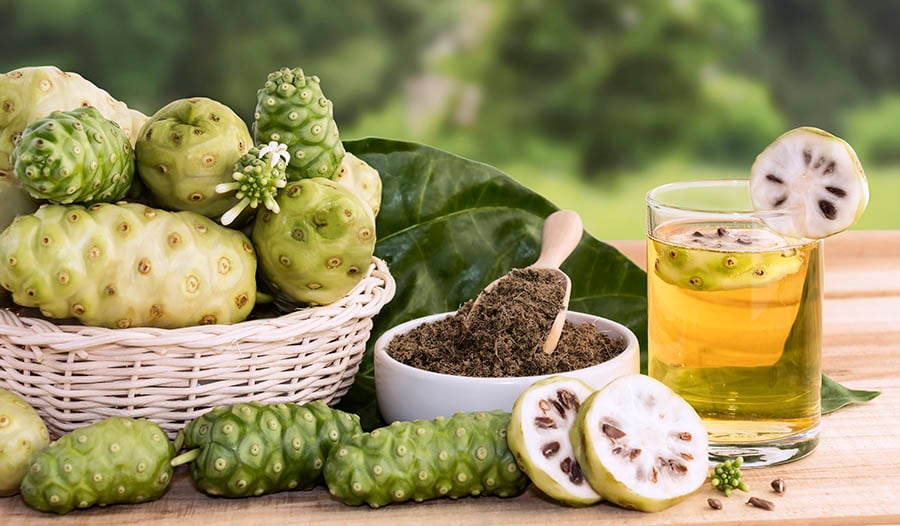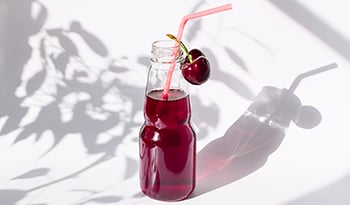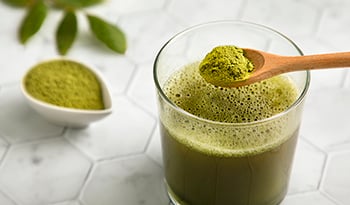Noni Juice: 5 Health Benefits
DISCLAIMER:This blog does not intend to provide diagnosis...
- In this article:
- What Is Noni Juice?
- How Is Noni Juice Made?
- What Is Noni Juice Good For? 5 Benefits
- Noni Juice Side Effects
- Takeaway

The surge in popularity of noni juice in recent years has sparked significant curiosity around this exotic fruit. While ancient cultures have long revered and harnessed the benefits of the noni fruit for centuries, contemporary medicine is now uncovering the remarkable potential of this fruit and its derivative, noni juice.
What Is Noni Juice?
Noni, also known scientifically as Morinda citrifolia, is a plant native to parts of northern Australia and Southeast Asia. Other names for the noni fruit include Indian mulberry, great Morinda, and cheese fruit. Traditional cultures of the Pacific Islands and Australian aborigines have used noni fruit as food and medicine for centuries.
The noni tree can be between 3 to 10 meters (10 to 32 feet) high. Although the noni plant produces fruit more often in summer than winter, fruit production lasts throughout the year.
The noni fruit is often an irregularly shaped oval with a pale yellow or translucent white exterior. The inside of the fruit is often white with a soft texture and dark brown seeds.
The taste of noni fruit has been described as unpleasant, extremely pungent, or like vomit or bad cheese.
How Is Noni Juice Made?
Noni juice is often made by placing fully ripe noni fruits into sealed containers for 2 months to allow for fermentation. Fresh noni juice can be obtained simply by pressing or squeezing the fruit. Noni juice from fully ripe fruits is often lighter, whereas noni juice from unripe fruits may have a darker color.
Since traditional cultures have used this interesting fruit for centuries, many may wonder what noni juice is good for.
What Is Noni Juice Good For? 5 Benefits
Noni juice benefits may include supporting healthy blood sugar, reducing inflammation, and promoting healthy cholesterol levels.
1. Blood Sugar Benefits
Diabetes is one of the world’s leading health concerns, with over 420 million individuals suffering from the disease worldwide. Studies suggest that noni juice may have anti-diabetic properties.
One study focused on the effects of noni juice on 20 individuals with type 2 diabetes who had also participated in a reduced-carbohydrate diet and taken anti-diabetic medicines and/or insulin. The participants ranged in age from 43 to 77.
The participants drank 2 milliliters (mL) per kilogram (kg) of body weight per day or 0.07 ounces (oz) per pound (lb) of body weight per day. After the study, 14 out of 20 participants had lower blood glucose levels. One participant experienced a decrease in fasting blood glucose while drinking noni juice. However, he was on three medications that hadn’t been able to lower his blood sugar below 180 milligrams (mg) per deciliter (dL).
The study also found that the average blood levels of C-peptide increased in those who previously had low levels. C-peptide is a substance made by the pancreas and released in equal amounts simultaneously with insulin. Measuring C-peptide levels can inform how much insulin the pancreas has made.
Another observational study focused on two different ethnic groups of people in Papua New Guinea and the rate of diabetes found in those groups. The study noted that the rate of diabetes in the people from the Wanigela region was higher than that in the Kalo region. The study found that individuals in the Kalo region were likelier to consume guava, especially guava bud and noni juice. The study noted that noni juice had similar activity to insulin in the body.
2. Anti-Inflammatory Properties
While inflammation can be a necessary part of the healing process when the body is wounded, chronic inflammation can wreak havoc on overall health. Long-term inflammation has been linked to many diseases that contribute to a shorter life span, such as cardiovascular disease, chronic kidney disease, and diabetes.
Studies indicate that noni juice may have powerful anti-inflammatory components. One test-tube study found that noni juice specifically had anti-inflammatory compounds like asperulosidic acid and rutin.
Rutin is a flavonoid similar to quercetin that may possess anti-inflammatory activity. One comprehensive analytical study found that rutin could reduce inflammation by reducing levels of inflammation-promoting cytokines like tumor necrosis-alpha and interleukin (IL)-6.
3. Cholesterol Support
Dyslipidemia is a condition in which cholesterol, triglycerides, or other lipids (fats) in the blood are abnormally elevated. It may contribute to cardiovascular diseases like high blood pressure, heart attack, or stroke.
Research suggests that noni juice may help support healthy lipid levels. Cigarette smoking may contribute to an increase in oxidative stress, inflammation, and dyslipidemia. One double-blind, randomized, placebo-controlled clinical trial focused on the effects of noni juice on serum lipid levels in adults who smoked heavily.
The study involved 132 participants who either drank noni juice or fruit juice daily for 1 month. The amount of noni juice drank ranged from 29.5 mL (1 oz) to 188 mL (approximately 6 oz).
The study found that those in the noni juice group had significantly lower levels of cholesterol, triglycerides, and high-sensitivity C-reactive protein (hsCRP). HsCRP is a molecule that indicates inflammation in the body. Higher levels of hs-CRP may indicate a greater risk of heart attack and stroke.
The study also found that those in the noni group experienced an increase in high-density lipoprotein (HDL) or good cholesterol and a decrease in low-density lipoprotein (LDL) or bad cholesterol. These results weren’t seen in the placebo fruit juice group.
4. Anti-Microbial Properties
Studies suggest that noni may have powerful antimicrobial properties. One double-blind, randomized clinical trial focused on the effects of noni on leishmaniasis.
Leishmaniasis is a disease caused by parasites. Leishmaniasis is caused by the bite of infected sandflies and is common in certain parts of the tropics, Southern Europe, and certain countries in Central and South America.
Two types of leishmaniasis may affect humans: cutaneous and visceral. Symptoms of cutaneous leishmaniasis may include bumps and lumps on the skin that become ulcerated, as well as swollen lymph nodes.
Visceral leishmaniasis symptoms usually include fever, an enlarged liver and spleen, weight loss, and abnormal blood labs.
The study found that noni was effective against cutaneous leishmaniasis as a topical ointment. The study noted that of the 40 participants, 80% experienced positive outcomes.
A test-tube study shed light on how noni juice may work against parasitic infections. The study found that noni could increase the production and release of nitric oxide within cells. Increased nitric oxide production helped reduce the number of leishmania parasites living within the cells.
5. Anti-Nausea Effects
While nausea and vomiting after surgery done under general anesthesia is a common occurrence for many, studies suggest that noni may have some anti-nausea properties that may be beneficial for those undergoing surgery.
One prospective, double-blind, randomized, placebo-controlled study focused on the effects of noni supplementation on preventing nausea and vomiting after surgery.
The study involved 100 participants aged 18 to 65. One hour before surgery, the participants were given either a placebo or 150 mg, 300 mg, or 600 mg of noni extract.
The study found that only 48% of those receiving the 600 mg noni extract experienced nausea within the first 6 hours of surgery, while 80% of the placebo group did.
Noni Juice Side Effects
Noni juice has been consumed as a traditional medicine for centuries in Southeast Asian cultures, so it is generally considered safe to consume.
One double-blind clinical safety study focused on the potential side effects of noni juice intake over 28 days on healthy participants. The study included 96 participants who were assigned to one of 4 groups: 0 mL, 30 mL (1oz), 300 mL (10 oz), or 750 mL (25 oz) of noni juice daily.
The study found that there was no difference in labs or electrocardiogram (EKG) findings between the groups. No significant adverse effects were reported in the study.
While noni juice consumption is generally safe, some individuals may experience side effects if they consume too much noni juice. Potential noni juice side effects may include diarrhea, gastrointestinal upset, and liver damage.
A few case reports have noted that short-term liver damage occurred when ingesting noni juice. The liver damage resolved once the noni juice was stopped. In the case reports, the association between noni juice and liver damage was weak, and the study concluded that this may be a rare phenomenon.
Takeaway
Traditional cultures of the Pacific Islands and Southeast Asian cultures have used noni juice for centuries, both as food and medicine. The health benefits of noni juice may be wide-reaching. From potential blood sugar control properties to promoting healthy cholesterol levels, noni juice is a powerhouse filled with nutrients that may supplement a whole-body wellness routine.
References:
- Algenstaedt P, Stumpenhagen A, Westendorf J. The Effect of Morinda citrifolia L. Fruit Juice on the Blood Sugar Level and Other Serum Parameters in Patients with Diabetes Type 2. Evid Based Complement Alternat Med. 2018;2018:3565427. Published 2018 Aug 6. doi:10.1155/2018/3565427
- Almeida-Souza F, de Souza Cda S, Taniwaki NN, et al. Morinda citrifolia Linn. fruit (Noni) juice induces an increase in NO production and death of Leishmania amazonensis amastigotes in peritoneal macrophages from BALB/c. Nitric Oxide. 2016;58:51-58. doi:10.1016/j.niox.2016.06.004
- Furman D, Campisi J, Verdin E, et al. Chronic inflammation in the etiology of disease across the life span. Nat Med. 2019;25(12):1822-1832. doi:10.1038/s41591-019-0675-0
- J. Yang, R. Paulino, S. Janke-Stedronsky, F. Abawi, Free-radical-scavenging activity and total phenols of noni (Morinda citrifolia L.) juice and powder in processing and storage,Food Chemistry, Volume 102, Issue 1,2007,Pages 302-308, ISSN 0308-8146, https://doi.org/10.1016/j.foodchem.2006.05.020.(https://www.sciencedirect.com/science/article/pii/S0308814606004122)
- Lee D, Yu JS, Huang P, et al. Identification of Anti-Inflammatory Compounds from Hawaiian Noni (Morinda citrifolia L.) Fruit Juice. Molecules. 2020;25(21):4968. Published 2020 Oct 27. doi:10.3390/molecules25214968
- LiverTox: Clinical and Research Information on Drug-Induced Liver Injury [Internet]. Bethesda (MD): National Institute of Diabetes and Digestive and Kidney Diseases; 2012-. Noni. [Updated 2020 Mar 28]. Available from: https://www.ncbi.nlm.nih.gov/books/NBK548374/
- Muvhulawa N, Dludla PV, Ziqubu K, et al. Rutin ameliorates inflammation and improves metabolic function: A comprehensive analysis of scientific literature. Pharmacol Res. 2022;178:106163. doi:10.1016/j.phrs.2022.106163
- Owen PL, Martineau LC, Caves D, Haddad PS, Matainaho T, Johns T. Consumption of guava (Psidium guajava L) and noni (Morinda citrifolia L) may protect betel quid-chewing Papua New Guineans against diabetes. Asia Pac J Clin Nutr. 2008;17(4):635-643.
- Pappan N, Rehman A. Dyslipidemia. [Updated 2023 Jul 10]. In: StatPearls [Internet]. Treasure Island (FL): StatPearls Publishing; 2024 Jan-. Available from: https://www.ncbi.nlm.nih.gov/books/NBK560891/
- Prapaitrakool S, Itharat A. Morinda citrifolia Linn. for prevention of postoperative nausea and vomiting. J Med Assoc Thai. 2010;93 Suppl 7:S204-S209.
- Sattar FA, Ahmed F, Ahmed N, Sattar SA, Malghani MA, Choudhary MI. A double-blind, randomized, clinical trial on the antileishmanial activity of a Morinda citrifolia (Noni) stem extract and its major constituents. Nat Prod Commun. 2012;7(2):195-196.
- TRADITIONAL NONI JUICE: Drip-extracted, fermented & aged, unadulterated. The Noni website - harvesting and processing - fruit juices. December 2006. https://www.ctahr.hawaii.edu/Noni/fruit_juices.asp
- Wang MY, Peng L, Weidenbacher-Hoper V, Deng S, Anderson G, West BJ. Noni juice improves serum lipid profiles and other risk markers in cigarette smokers. ScientificWorldJournal. 2012;2012:594657. doi:10.1100/2012/594657
- West BJ, Deng S, Isami F, Uwaya A, Jensen CJ. The Potential Health Benefits of Noni Juice: A Review of Human Intervention Studies. Foods. 2018;7(4):58. Published 2018 Apr 11. doi:10.3390/foods7040058
- West BJ, White LD, Jensen CJ, Palu AK. A double-blind clinical safety study of noni fruit juice. Pac Health Dialog. 2009;15(2):21-32.

 By Dr. Candace Mathers, N.D.
By Dr. Candace Mathers, N.D.



